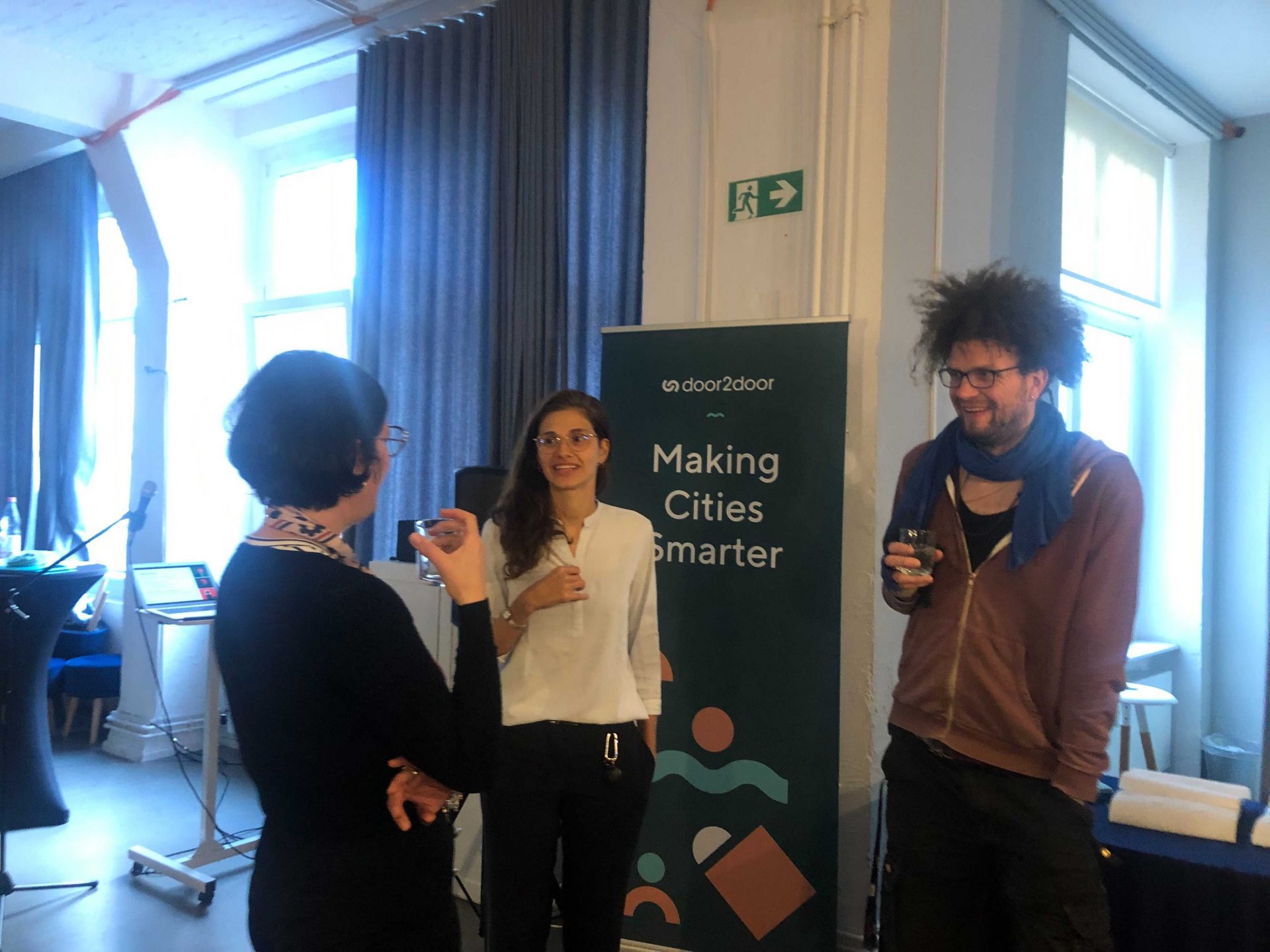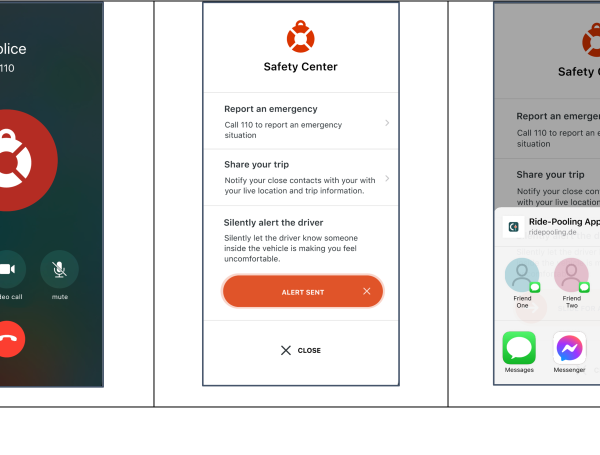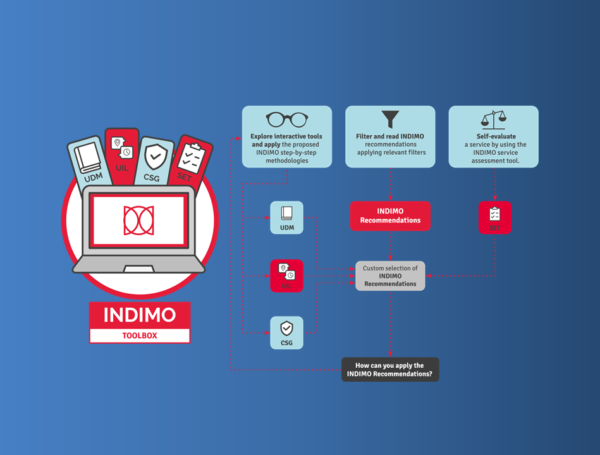By Floridea di Ciommo, CambiaMo and Berlin pilot site leader,
In this article we share our experience related with the implementation of the redesigned service in our Berlin pilot. The inclusion of women caregivers of children in shared transportation mode, specifically ride-pooling services, is the focus of the pilot of the Digital Mobility Solution in Berlin. As part of the evaluation process of the recommendations included in the Universal Design Manual, part of the INDIMO Toolbox, the Community of Practice of Berlin pilot (i.e. a co-creation space including local users, mobility and delivery services providers, (digital) developers, policymakers and researchers to develop common knowledge) has selected the Universal Design recommendation for working on the development of an emergency button concept focusing on perceived safety. To develop such a concept, the pilot derived different scenarios that would make women feel uncomfortable when using ride-pooling services and conceptualized three stages of severity of perceived safety: yellow (relatively safe), orange (moderately safe), red (extremely unsafe). Subsequently, door2door, the developer and former pilot leader in Berlin, prototyped an app-based security function for each of these situations. This concept goes beyond the well-known emergency breaks in public transportation systems and takes into consideration that security-critical situations many times are nuanced and need differentiated solutions.
- The testing and assessment were performed within the Maze platform, providing a user testing on 3 test variants, each with a different scenario of the threats.
- The recruitment of end-users has been a challenge for the Berlin pilot because door2door is a white-label platform offering an integrated ride-pooling service to public transport operators and mobility providers. To this aim single mothers in Berlin, Germany, were recruited through the Door2Door network responding to profiles.
*Click on the image for a full display
Check out the Berlin pilot site:





